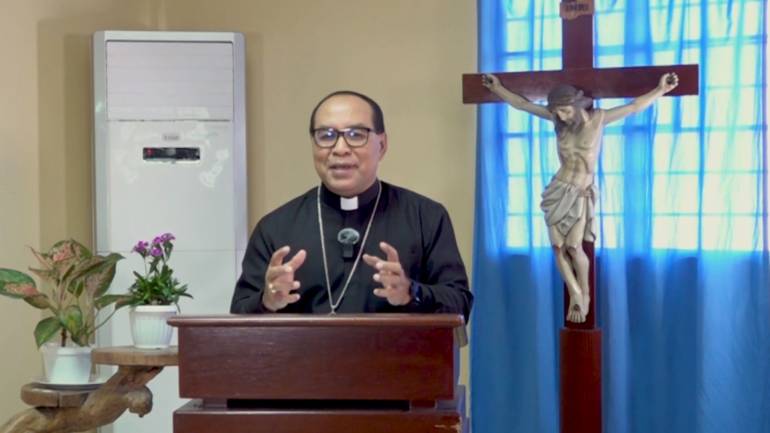‘Encountering ecology is encountering the Creator’ – Indonesian bishop
An Indonesian bishop said that every Catholic must promote environmental stewardship since “encountering ecology is also encountering the Creator.”
In an exclusive interview with Fr. Kasmir Nema of Radio Veritas Asia (RVA), Ruteng Bishop Siprianus Hormat stressed that ecological movements are not just about planting trees but also about fostering a deep spiritual awareness.
The bishop, who also serves as chairman of the Commission for Justice and Peace of the Bishops' Conference of Indonesia (KWI), shared about the recently launched Integrated Ecological Pastoral Program in his diocese.
“This coordinated effort strengthens our ability to address climate issues effectively,” said the prelate.
This program mainly involves integrating ecological actions with the sacraments and other major Church activities.
“For example, during baptisms and first communions, we give each participant a tree to plant. This initiative symbolizes the growth of faith and responsibility towards the environment,” he explained.
“We aim to establish a new ecological mindset within our parishes, enhancing community welfare and fostering a deep connection between faith and environmental stewardship,” he said.
Bishop Siprianus believes this program could greatly help address the throwaway culture, which he noted is becoming prevalent in the Diocese of Ruteng and Indonesia as a whole.
He encouraged the faithful to actively contribute to the diocesan efforts to reduce plastic use and food waste.
Moreover, the prelate shared his insights about the government's plans to construct a geothermal project in West Manggarai, which lies in his diocesan territory.

He said the Church supports this type of energy production but emphasized the importance of cautious management.
“Respect for local customs is crucial, especially in Manggarai, where local traditions and community well-being are paramount,” he said. “It is essential to ensure that geothermal projects do not disrupt these customs and instead provide positive effects for the local population.”
“The church advocates for a balanced approach that safeguards both the environment and the cultural heritage of the community,” the bishop underlined.
Furthermore, Bishop Siprianus voiced out his concerns regarding the government’s designation of Labuan Bajo, also located in his diocese, as a premium tourist destination.
He revealed that the tourism policy brought economic growth and cultural appreciation to their region, but also caused marginalization, resource exploitation, and cultural erosion.
“The diocese is actively addressing these issues to balance development with the preservation of local heritage and community well-being,” said the prelate.
Radio Veritas Asia (RVA), a media platform of the Catholic Church, aims to share Christ. RVA started in 1969 as a continental Catholic radio station to serve Asian countries in their respective local language, thus earning the tag “the Voice of Asian Christianity.” Responding to the emerging context, RVA embraced media platforms to connect with the global Asian audience via its 21 language websites and various social media platforms.














